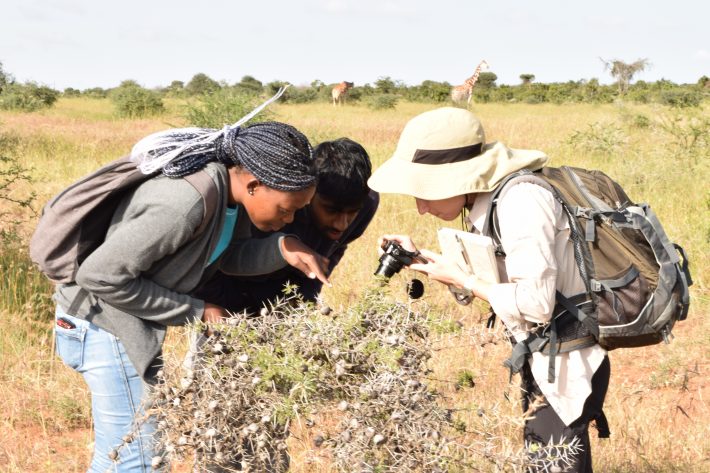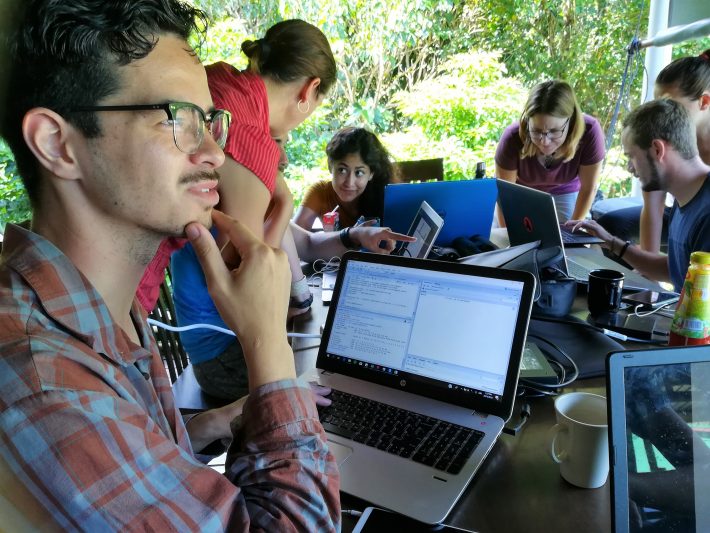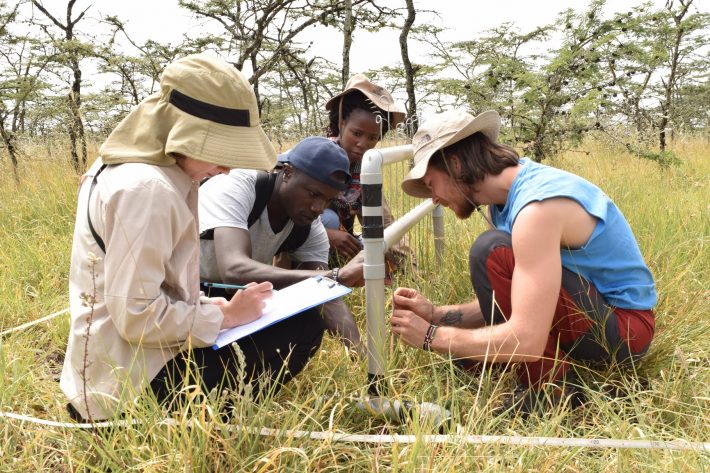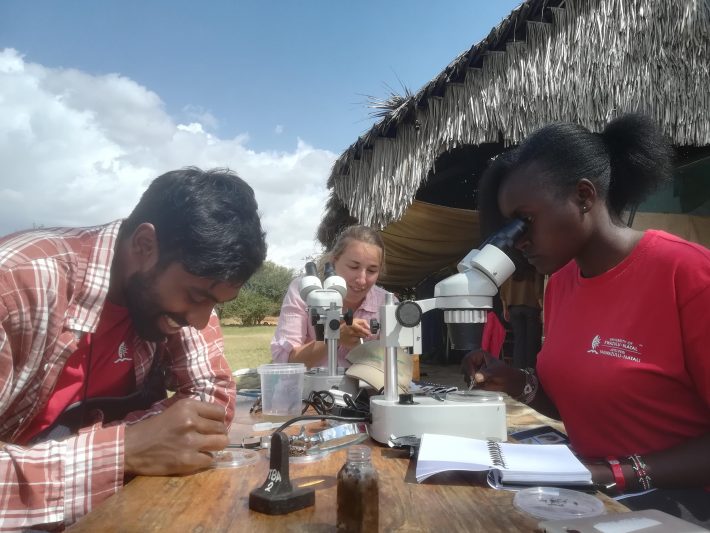“We need more conservationists!” How a field course run by the Tropical Biology Association empowers the ecological community
The British Ecological Society speaks to past students and course leaders about the ‘life-changing’ field course run by the Tropical Biology Association.

“Alfred, a student from Papua New Guinea, and I almost got into a fight with a troop of macaques when crossing a bridge,” says Arvid, a student at the University of Lund in Sweden. “They were eating fruit on the opposite side,” Arvid remembers, “but we needed to cross so kept walking… until three males strode towards us, baring their fangs. We tried staring them down but eventually lost the game of chicken and turned around, defeated.”
Arvid was one of around twenty students that took part in the Tropical Biology Association’s 2017 field course in Borneo. Since the 1990s, the TBA has been running these month-long courses, and the British Ecological Society has supported them right from the start.

While not everyone ends up facing-off with monkeys, students are immersed in a tropical habitat, be it be a rainforest in Borneo, a tropical dry forest in Madagascar, or the savannah in Kenya. An expedition like Arvid and Alfred’s is just one element of the course which also includes workshops, expert talks and learning new techniques like surveying birds or running transect surveys of frogs. They also carry out their own research projects that they write up and present on the course.
The 50/50 placements is the best thing about it
Unlike most Western ecology expeditions, the TBA selects half of students from Europe and half from the host region, either Africa or Asia. The 50/50 placements enrich the experience, and both students and teachers say it is the best thing about their time away.
“We were from so many different backgrounds which gave us learning opportunities on so many levels,” says Chigusa, a student at the University of Zurich.
Esther, a student from the Netherlands, agrees. “And not only knowledge about ecology and conservation, but also about life.”
Assumptions about who holds the most expertise about conservation are quelled through this sharing of knowledge. Host region students often begin the course feeling that the European students will be at a higher level. By spending time together, they realise this is not true: they may know less about one subject, but far more about another. “It’s the reason why I have continued to teach on TBA courses over the past 16 years,” reveals Professor Ara Monadjem from the University of Eswatini.
“Collaboration is the bedrock of ecology.
Empowerment through sharing of knowledge is a defining characteristic of the TBA course. Rosie Trevelyan, Director of the TBA, emphasises that collaboration is the bedrock of ecology. Like many sciences, tropical ecology is multidisciplinary, and establishing large projects requires collaboration, not just across nations, but also between people who bring different expertise to conservation research.
The TBA recognises this and while it gives places to students on a 50/50 basis from the host region and Europe, it also does the same for teachers. Moreover, local conservationists show all the students first-hand how conservation works in the area, what the real challenges are and how people overcome them. “We run all our courses with organisations from the host country,” says Rosie. “We very much see it as we’re learning together, working together.”
The students appreciate this aspect of the course too. “It is done in a way that encourages any future research to be in collaboration with the local experts and not as exploitative as it often was in previous decades,” Arvid emphasises.

These unique approaches have seen the TBA forge a vibrant community of ecologists across continents with connections that last a lifetime, and impact the students’ personal as well as professional lives.
“The networks go on to serve students throughout their careers,” says Dr. Daisy Dent from the University of Stirling, who taught on a recent course in Asia. “They leave with friends and colleagues from more than 15 countries around the world.” Course leaders have furthermore gone on to publish with ex-TBA students or supervise them for PhDs.
The opportunity provided by TBA makes students’ future ambitions a reality, showing them what they can achieve in conservation ecology. “The network of course participants (and now friends) gives me courage to try pursuing a conservation career in Asia,” says Chigusa, who is now working toward her dream job as science coordinator of an elephant project in Thailand.
“We still have an active WhatsApp group!
“My aim upon finishing my degree was to embark on fieldwork projects, but until completing the TBA course I wasn’t sure this would be possible,” adds Sophie, a student at the University of Edinburgh. “I loved building a cross-continent science network. We still have an active WhatsApp group!”
With over 1800 students completing their field courses over the past two decades, around 90% have remained in the biological field in some form, whether in research, teaching or conservation. Rosie Trevelyan, sees this as one of their biggest successes. “Conservation is so critical right now worldwide, we need more conservationists,” she says.

Kickstarting ecological careers and retaining them complements the British Ecological Society (BES)’s strategic goal to foster a strong, global ecological community. Every year, the BES funds scholarships for the European students to attend the TBA field courses. The TBA supports all students from the host regions in Africa and Asia, but without the BES contribution, European students would have to pay in full.
It is a question of access and mobility, Rosie adds. “Students have enough financial pressures already and without the funding, we would have narrower pool of students able to come on the courses.”
The TBA ‘family’ stretches across oceans, and despite the distance, both TBA alumni and the organisers never forget their experiences.
“What I love is that it’s very rare for me to go to an international meeting somewhere and NOT meet a TBA alumnus,” says Rosie. “At the BES Annual Meeting in 2018 I met both European and African alumni who remembered the TBA and came up to me to tell me what they’ve been doing since. That is a wonderful experience.”
Images by K Wallace, Tropical Biology Association
Like what we stand for?
Support our mission and help develop the next generation of ecologists by donating to the British Ecological Society.